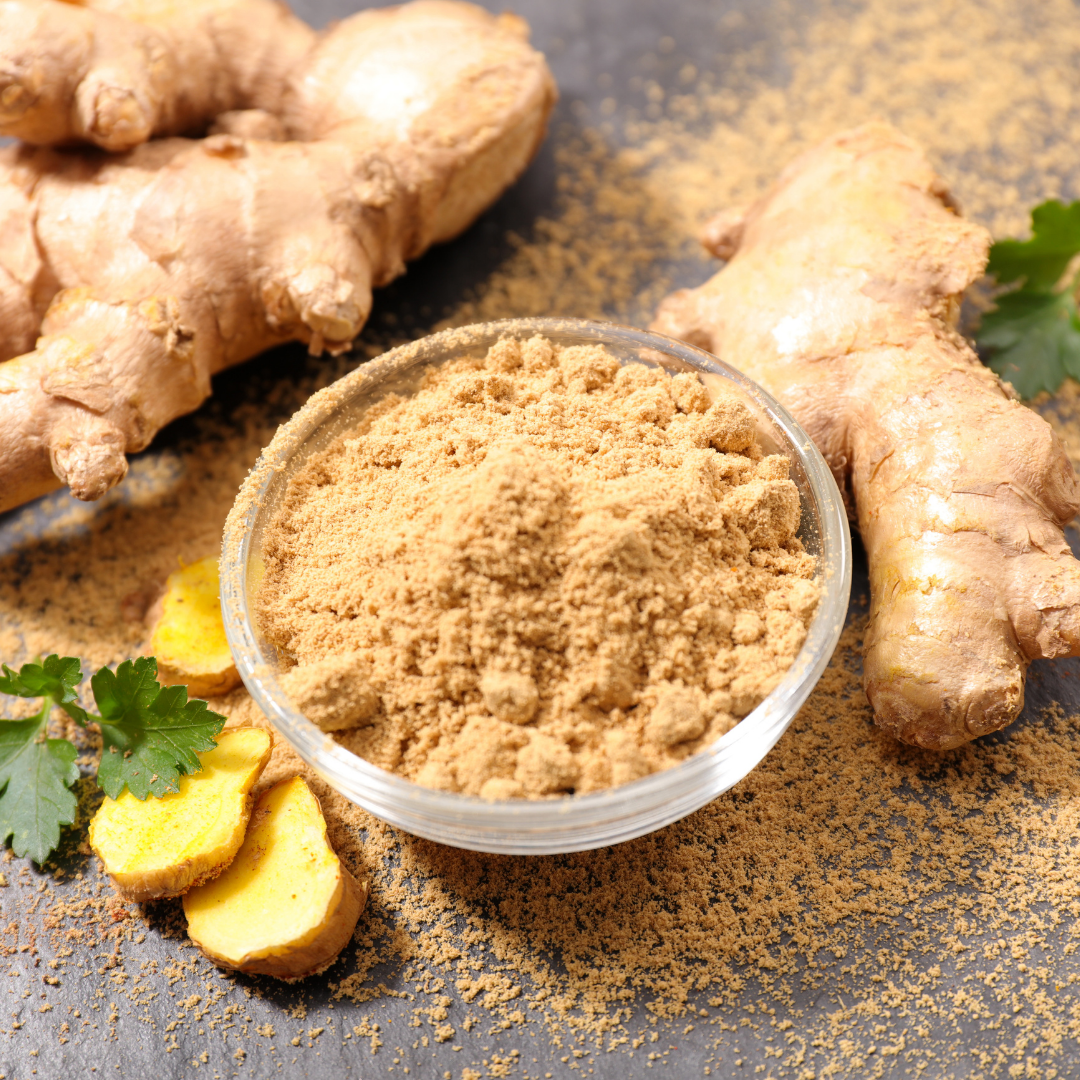
Ginger
Scientific Name: Zingiber officinale
Common Name: Ginger
Health Benefits:
Supports Digestive Health:
- Relieves nausea, indigestion, and motion sickness by calming the stomach and enhancing digestive enzyme activity.
- Eases bloating and gas by promoting healthy gastrointestinal motility.
Anti-Inflammatory Properties:
- Contains gingerol, a powerful anti-inflammatory compound that may help reduce symptoms of arthritis and other inflammatory conditions.
Immune System Support:
- Antimicrobial and antioxidant properties support the immune system, helping to fight off colds and infections.
Promotes Circulation and Cardiovascular Health:
- Ginger helps improve blood circulation and may reduce blood pressure and cholesterol levels, supporting heart health.
Eases Menstrual Discomfort:
- Acts as a natural pain reliever, reducing cramps and other menstrual symptoms.
Vitamins and Minerals:
- Vitamin C: Supports immunity and collagen production.
- Magnesium: Helps with muscle function and energy production.
- Potassium: Maintains fluid balance and supports heart health.
- Iron: Essential for red blood cell production.
Active Compounds:
- Gingerol: The primary bioactive compound responsible for ginger’s anti-inflammatory and antioxidant properties.
- Shogaol: Formed when ginger is dried, shogaol has potent anti-nausea and anti-inflammatory effects.
- Zingerone: Contributes to the digestive and antioxidant benefits of ginger.
Safety Information:
Stomach Sensitivity:
- In large amounts, ginger may cause heartburn or stomach irritation in sensitive individuals.
Drug Interactions:
- May interact with anticoagulants (blood-thinning medications) and diabetes medications. Consult a healthcare provider if you are on such medications.
Usage Guidelines:
- Generally safe in culinary amounts and as a tea.
- For concentrated supplements, follow dosage recommendations and consult a healthcare professional if needed.
Forms of Ginger:
- Fresh Ginger Root: Often used in teas, cooking, and remedies for nausea.
- Dried Ginger: Common in spice blends and has a stronger flavor.
- Powdered Ginger: Convenient for teas, capsules, or baking.
Fun Fact:
Ginger has been used in traditional medicine for over 5,000 years, with references in ancient Chinese, Indian, and Middle Eastern texts as a remedy for various ailments.
Note:
This information is for educational purposes only and is not intended to replace medical advice. Always consult with a healthcare professional before using herbal products, especially if you are pregnant, nursing, or taking any medications.



